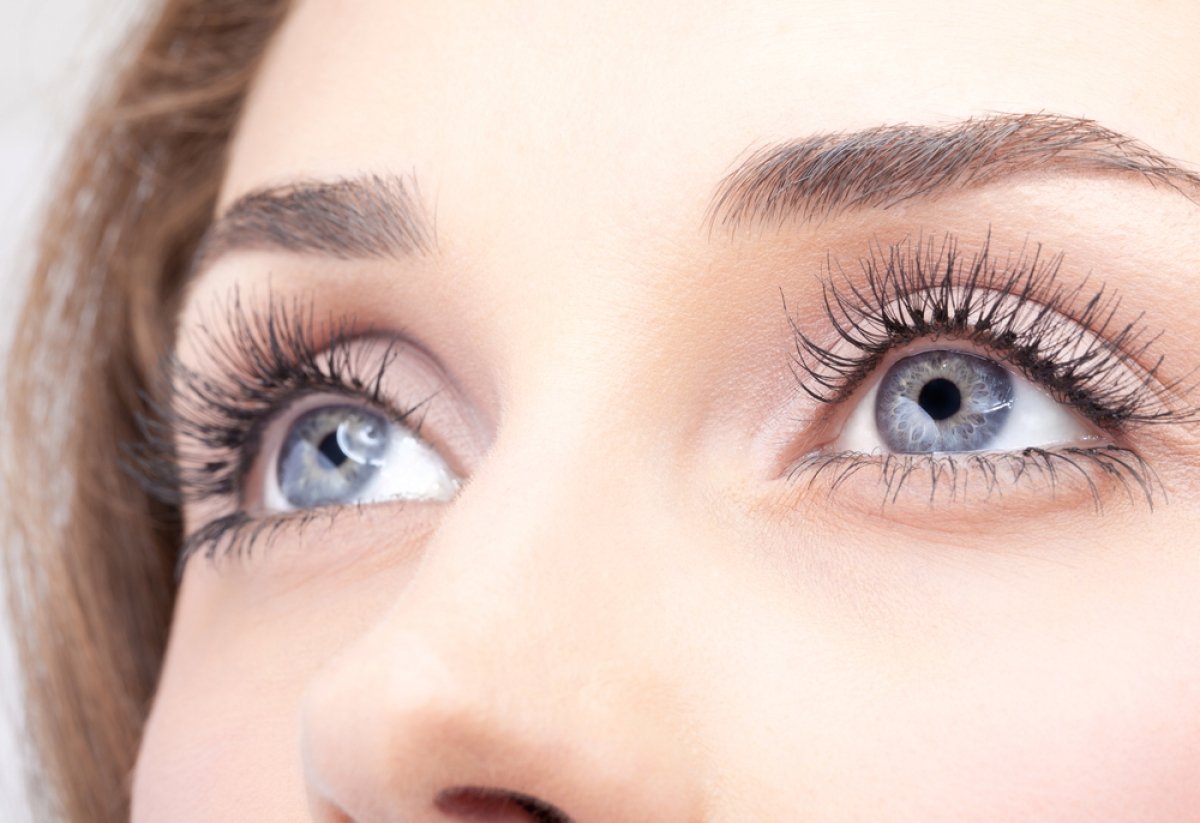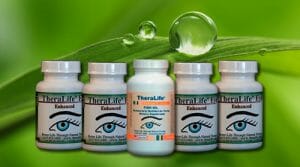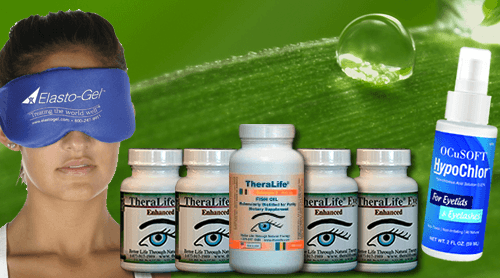Introduction- Uveitis Relief
Uveitis is an inflammatory eye condition that can cause damage to the eyes if left untreated.
Symptoms of uveitis include pain, redness, and blurred vision.
This article will explore one person’s journey with uveitis, focusing on their experience overcoming this condition and finding relief.
This article will provide insight into how the individual was diagnosed, what treatments they sought out, and any lifestyle changes or alternative therapies utilized in order to find successful management of their symptoms.
Additionally, information pertaining to the emotional toll of living with a chronic illness will be discussed from both the patient’s perspective as well as medical professionals who have worked closely with them.
Uveitis is considered an Autoimmune disorder. There is no cure, but we can ease the discomfort and slow down the progression, prevent further damage.
How TheraLife Can Help Uveitis Relief?
TheraLife Autoimmune is a patented formula to address the fundamental root causes of inflammation in autoimmune eye diseases. These diseases include Sjogren’s, Lupus, Rheumatoid Arthritis, Ocular Rosacea, Uveitis, and more.
To learn more, click here.
TheraLife Eye capsules can be used during steroid or immuno-suppressant drug treatments or used during remission to prevent a recurrence.
To learn more about how TheraLife Eye works. Click here
Our Customer Success Stories
“I have found Theralife Eye to be truly miraculous and I’m not even at the point where it’s stabilized out yet. I look forward to being able to drop the dosage to a maintenance level, but no matter what I feel positive that I have found an answer to this chronic problem and for that I am extremely grateful.
Thank you, Dr. Yang, for your care – and for believing in the ability to heal inflammation without drugs. I highly recommend Theralife Eye to anyone with dry eye or any eye condition or inflammation. It does work and I have found the results to be truly amazing. Even though I had been following other protocols to handle inflammation in the body. Without Theralife my eyes were still prone to flare ups. With Theralife, my eyes are becoming healthy again. Quite miraculous“.
Denise F, United States
——————————————————————————————
Diagnosis And Initial Symptoms of Uveitis
Uveitis is an inflammatory condition of the eye that affects over 250,000 people in the United States each year. It has a genetic predisposition as well; up to 30% of those affected have at least one family member with a history of uveitis. Proactive management and early diagnosis are paramount for attaining relief from this debilitating condition.
The hallmark symptoms of uveitis include blurred vision, pain or redness in one or both eyes, light sensitivity and floating spots (floaters) in your field of vision. Uveitis can also cause headaches and pain behind the eyeball due to its inflammation-related effects on surrounding tissue.
As these symptoms often present themselves gradually, it’s important to be vigilant about monitoring any changes you observe with your sight so treatment can begin promptly if needed.
A thorough examination by an ophthalmologist is recommended for anyone experiencing possible signs of uveitis. Diagnostic tests used to confirm the presence of uveitis may include visual acuity testing, tonometry to measure intra-ocular pressure, slit lamp exam, ultrasound imaging and fundus photography to evaluate any damage caused by the disease.
Additionally, blood work may be performed to determine whether there is an underlying autoimmune disorder contributing to your symptoms.
Conventional Treatment Approaches to Uveitis Relief
Uveitis is a condition of the eye which can be treated using conventional approaches. It is important to note that not all treatments are effective for all types of uveitis, as its causes may vary among individuals. With this in mind, it is essential to have an understanding of some common treatment strategies for uveitis relief:
* Medication: Including corticosteroids and other immunosuppressive drugs, depending on the severity and type of uveitis relief. These medications can cause various side effects ranging from mild discomfort to serious infection or organ damage.
* Surgery: In cases where vision loss has been caused by inflammation, laser therapy or surgery may be used to reduce swelling and improve vision for uveitis relief.
* Lifestyle modifications: This includes avoiding triggers such as bright lights or allergens, wearing protective eye wear when exposed to sunlight and dust particles, quitting smoking if applicable, eating a healthy diet rich in antioxidants, getting adequate sleep each night and managing stress levels effectively.for uveitis relief.
* Regular Eye Exams: Routine eye exams with an ophthalmologist are recommended for monitoring any changes in vision related to uveitis relief.
* Follow-up Care: Patients should follow their doctor’s advice regarding medication dosing schedules, lifestyle modifications and regular checkups so that progress can be monitored over time for uveitis relief.
In light of these conventional treatment options available for those suffering from uveitis, alternative therapies offer additional considerations when seeking relief from symptoms associated with this condition.
Alternative Therapies for Uveitis Relief
In treating uveitis, there are a number of alternative therapies that may be employed in addition to conventional treatment approaches. These include yoga therapy, acupuncture and herbal remedies for uveitis relief.
Yoga is an ancient practice with potential benefits for relieving pain from chronic conditions such as uveitis relief. Research suggests that incorporating specific poses into the daily routine can help reduce inflammation, thereby allowing people to better manage their condition by reducing symptoms.
Acupuncture has also been studied in relation to uveitis management. Studies have shown it may be helpful in alleviating pain associated with the disease and improving overall quality of life.
Herbal remedies have also been investigated; however, more research is needed before these treatments can be recommended for use in clinical settings.
The next step in managing uveitis is exploring diet and nutrition options that promote health and reduce symptoms for uveitis relief.
Diet And Nutrition for Uveitis Relief
Nutrition plays an important role in uveitis, as nutrient deficiencies may lead to a flare-up or exacerbation of symptoms. The nutrients that are most commonly associated with uveitis include vitamin A, omega-3 fatty acids, and zinc.
Vitamin A is essential for maintaining healthy vision and helps protect against inflammation for uveitis relief.
Omega-3 fatty acids reduce inflammation throughout the body, including the eyes for uveitis relief.
Zinc has been found to help support eye health by reducing oxidative damage caused by free radicals for uveitis relief.
Food sensitivities can also be a factor when it comes to managing uveitis. Common food allergens such as dairy products, gluten, soy, peanuts, eggs, corn, and tree nuts should be avoided if sensitivity is suspected.
In some cases where the cause of the sensitivity cannot be determined through traditional testing methods such as skin prick tests or blood tests for IgE antibodies, elimination diets have proven helpful in identifying triggers that increase inflammation and worsen existing symptoms.
Making dietary changes based on individual needs may improve outcomes in individuals suffering from uveitis while helping them maintain overall health and well-being.
It is recommended that patients speak to their doctor before making any major dietary modifications so they receive adequate guidance and education about nutritional requirements specific to their condition.
With proper nutrition management strategies tailored to each person’s unique needs, people living with this condition can make positive lifestyle changes that will benefit both physical and emotional health.
Transitioning into stress relief practices and other forms of emotional self-care could further aid recovery from this chronic illness.
Stress And Emotional Well-Being for Uveitis Relief
The body’s response to stress can be a major contributing factor in the development of uveitis, as well as its duration and severity. Thus, it is essential for those with this condition to invest time into finding ways that help them manage their emotional wellbeing.
Mindfulness meditation and lifestyle changes are two potential coping strategies that have been found to be helpful in managing stress associated with chronic health conditions like uveitis.
Mindfulness meditation has become increasingly popular among people living with chronic illnesses due to its ability to reduce stress levels and improve overall quality of life. It involves focusing on being aware of one’s thoughts and feelings without judgment or trying to change them. Studies suggest that practicing mindfulness helps individuals better understand how different emotions manifest physically and provides insight into learning how to cope with stressful situations more effectively.
Lifestyle changes such as regular physical activity, adequate sleep, maintaining healthy relationships, engaging in leisure activities, eating nutritious foods, and avoiding smoking can all make a significant difference in mitigating stress-related symptoms associated with uveitis. Furthermore, these practices may also promote emotional resilience which can help increase an individual’s capacity for dealing with difficult circumstances while still allowing them to enjoy life despite their medical diagnosis.
Below is a list of five beneficial tips for improving mental health when living with uveitis:
– Practice mindful breathing exercises throughout the day
– Prioritize getting 7–8 hours of uninterrupted sleep each night
– Avoid excessive caffeine intake
– Develop healthy relationships with family members or friends who will listen and support you unconditionally
– Participate in enjoyable activities regularly
Practice relaxation techniques such as yoga, meditation, or tai chi.
Coping Strategies for Uveitis Relief
Navigating the murky waters of a chronic illness can often feel like being lost at sea, feeling alone and struggling against an unrelenting current. For those managing uveitis, finding relief requires more than just medical intervention; lifestyle changes must also be made to maximize healing effects.
Taking care of one’s mental health is paramount when dealing with any long-term condition. It is important to practice self-care by engaging in activities that bring joy or relaxation such as yoga, meditation, reading, music or painting. Additionally consulting with a professional therapist can help individuals manage stress levels and create positive coping strategies for difficult times.
Making healthy lifestyle changes will not only benefit physical health but emotional wellbeing as well. Eating nutritious foods including lots of fruits and vegetables has been found to reduce inflammation throughout the body while exercising regularly increases endorphins which helps increase overall feelings of happiness and contentment.
By taking these necessary steps towards improving personal wellness it is possible to achieve greater control over the symptoms associated with uveitis leading to improved quality of life. With newfound insight into how best to cope with this affliction, we are now prepared to explore further support from family and friends who offer encouragement along the journey towards recovery.
Support From Family And Friends for Uveitis Relief
Coping with uveitis can be a difficult and isolating experience. Fortunately, many individuals find solace in the support of family and friends. This type of emotional support can provide invaluable assistance for those struggling to cope with this condition.
Lifestyle changes are also important when managing uveitis, as they help create a sense of control over the body and environment. Friends and family members may be able to recommend resources or activities that reduce stress levels, increase relaxation, and generally improve quality of life during treatment.
Establishing strong support networks is essential for long-term success and management; positive relationships can not only offer comfort but also guidance when navigating decisions related to health care options or lifestyle modifications.
Finding relief from uveitis depends on an individual’s ability to access appropriate resources while managing their physical and mental wellbeing throughout treatment. With the right combination of emotional support, lifestyle changes, and medical intervention, it is possible to achieve successful outcomes despite the challenges posed by this condition.
Moving forward towards long-term success and management requires dedication to self-care practices as well as a commitment from supportive networks.
Long-Term Success And Management for Uveitis Relief
Uveitis is a condition that can cause long-term, debilitating effects. However, with the right treatment and self care, relief from uveitis symptoms is achievable.
According to recent studies by the National Institute of Health, 97% of patients suffering from uveitis have reported improvement in their eye health within two months after making lifestyle changes and following a proper care plan.
Self care plays an important role in managing uveitis. Patients should focus on:
* Eating a balanced diet full of fruits, vegetables, whole grains and healthy fats
* Staying hydrated
* Getting regular exercise
* Reducing stress levels through meditation or other relaxation techniques
* Quitting smoking if necessary
* Wearing sunglasses when going outside to protect eyes from ultraviolet rays
* Visiting an ophthalmologist regularly for checkups.
These steps are essential for optimizing physical health while also leading to improved psychological well-being. By taking charge of one’s own health through good habits such as these, individuals affected by uveitis can take back control over their lives and find lasting relief from their symptoms.
Frequently Asked Questions
What Is The Prognosis For Uveitis?
Uveitis is a condition that causes inflammation in the eye and can be very debilitating.
While there is no definitive prognosis for uveitis, it is important to seek medical help as soon as possible to reduce complications such as vision loss or glaucoma.
Eye exams are essential to accurately diagnose the type of uveitis one may have and monitor its progression.
Risk factors include age, gender, family history, genetics, previous infections and autoimmune diseases.
Treatments vary depending on the form of uveitis but generally involve medications including corticosteroids and immunomodulators.
Is There A Genetic Component To Uveitis?
Uveitis is an inflammatory eye disorder that can be caused by a variety of factors including genetic components.
Genetic testing has become increasingly common in recent years as researchers work to understand the causes and triggers of uveitis.
Results from these tests indicate that genetics may play a role in triggering an immune response which then leads to inflammation and uveitis.
Further research into this area will likely help provide more insight into the connection between genetics and uveitis, allowing for better treatments and outcomes for those affected by the condition.
Are There Any Lifestyle Changes That Can Be Made To Help Manage Uveitis?
Despite popular belief, it is possible to manage uveitis through lifestyle changes.
Dietary modifications and exercise adjustments can play a role in reducing inflammation associated with the condition. For example, research has shown that people who consume diets high in Omega-3 fatty acids have lower levels of inflammation than those who do not.
Additionally, engaging in regular physical activity helps reduce stress and improve overall health which can help alleviate symptoms caused by uveitis[2].
While these lifestyle changes are not cures for the disease, they may provide relief from symptoms associated with the condition.
What Are The Long-Term Effects Of Uveitis?
Uveitis is an inflammatory condition of the eye that can cause serious long-term effects if not detected and treated early.
These effects include permanent damage to vision, glaucoma, cataracts, and retinal detachment.
While there are treatments available for uveitis, such as corticosteroids or immunosuppressants, alternative treatments like acupuncture may also be beneficial in some cases.
Early detection is key to managing this condition and mitigating any potential long-term effects it might have on one’s health.
What Other Conditions Are Related To Uveitis?
Uveitis is an inflammation of the uvea, which is a part of the eye.
It can be caused by infection, autoimmune disorders, or other conditions such as sarcoidosis and systemic lupus erythematosus (SLE).
In some cases, it may also be related to certain types of cancers.
Testing treatments and preventative measures are essential for determining if there are any associated conditions with the onset of uveitis.
Healthcare providers typically will use imaging tests, blood tests, and biopsy results to determine if further treatment is necessary for reducing symptoms or preventing future flare-ups.
Conclusion
Uveitis is a serious condition that can cause pain, vision loss and other long-term effects.
While the exact causes of uveitis are still unknown, research suggests potential genetic and lifestyle components in its development.
Thus, understanding the prognosis for uveitis as well as any related conditions may help individuals to better manage their symptoms and find relief from this debilitating condition.
Through education and proactive management strategies, those affected by uveitis can hope to reclaim control over their health like a phoenix rising from the ashes.
By taking initiative through proper medical treatment and lifestyle changes, individuals with uveitis have the opportunity to see positive outcomes despite the challenges they face.
References





